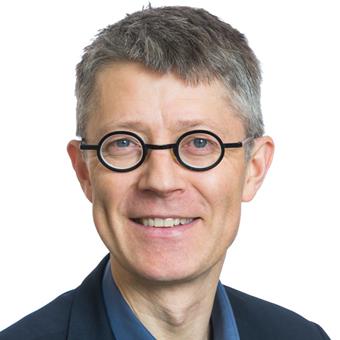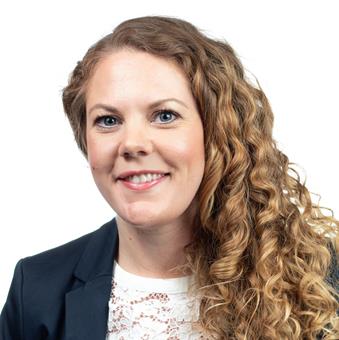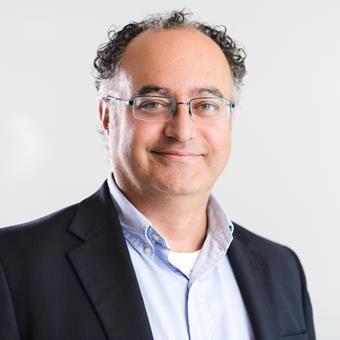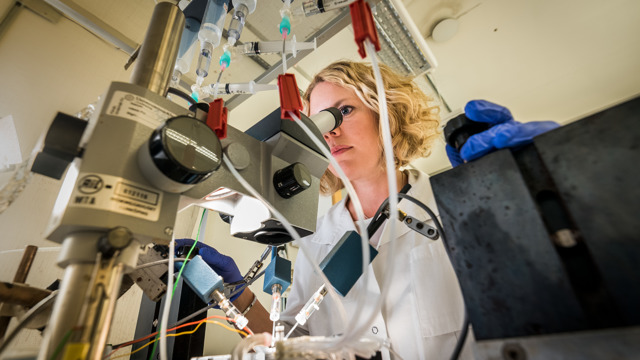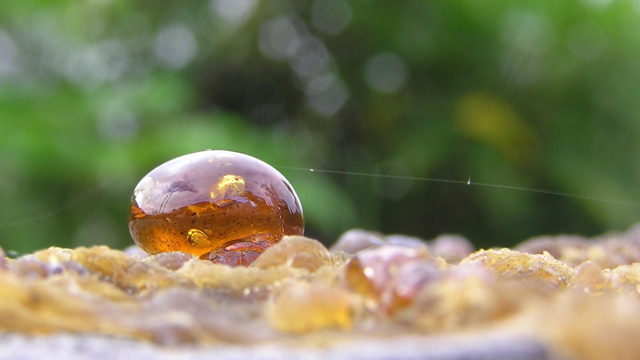The researchers have had help from LiU Innovation in the start-up process. Photo credit Thor Balkhed More than 60,000 people in Sweden have epilepsy, many of them children. During an epileptic seizure, huge numbers of nerve cells in the brain transmit electrical impulses in an uncontrolled manner. It is possible in many cases to prevent the seizures using drugs that influence how readily the nerve cells release electrical impulses. At Linköping University specialists in electrophysiology, molecular biology and synthetic chemistry have joined forces to create new substances, and they hope it will be possible to develop these into new drugs against epilepsy.
“Contact the innovation office early. Discuss the question with people who know a lot about commercialisation,” is the advice Nina Ottosson gives to other researchers. Photo credit Thor Balkhed
“There is an urgent need for new anti-epileptics. Drugs fail to prevent seizures in approximately 30% of people, and many patients experience problems with side effects. New drugs would benefit many people, and this is a strong motivation for us,” says Nina Ottosson, principal research engineer at the Department of Clinical and Experimental Medicine.
The patenting process can be a jungle
Together with five other LiU researchers, she has recently started a company to take the research onwards. They have been in dialogue with LiU Innovation throughout the process. This is a body owned by Linköping University that supports students, researchers and employees in questions relating to innovation and entrepreneurship. Professor Fredrik Elinder, who leads the research group studying the function of ion channels, contacted LiU Innovation several years ago to investigate the possibilities and obtain advice about his ideas.“Starting a company doesn’t have to be about making a profit. It can also be a way of introducing social innovation, for example,” says Ali Moshfegh at LiU Innovation. Photo credit Thor Balkhed
The pathway forwards has not been straight, and the researchers have contacted the innovation office on several occasions. They are now in the safe hands of Ali Moshfegh, innovation adviser at LiU Innovation. The first step is for the innovation adviser to evaluate the project.
“We look at how it can benefit society, and whether the subject is arousing a lot of attention in the field. Can it be patented, or can it form the basis for a company even if it can’t be patented? It’s also important that team has dedicated members who are interested in starting a company,” says Ali Moshfegh.
LiU Innovation can help companies until they are able to stand on their own feet and progress to what is known as a “business incubator”.
“We have received financial support on several occasions. It’s clear that we can’t use research grants for this, and it’s difficult to use personal money, which we’ve paid tax on, for such expensive processes,” says Fredrik Elinder.
LiU Innovation guided the researchers when they took expert help in writing a patent application. Nina Ottosson describes the patenting process as a jungle. They have had many questions, and have received answers to these along the way.
“The guidance from LiU Innovation has been the most useful, right from the start. At the start, we didn’t know if it was worth applying for a patent, and so it was necessary to delay before we showed anything to other people,” says Nina Ottosson.
“If LiU Innovation had just given us money without the help and advice, I don’t think anything would have come if it,” says Fredrik Elinder.
Long way to commercial drug
It is much more usual that researchers start companies to develop medical devices than drugs. To put it plainly – there’s a better chance of success. The process of developing a medicine from an interesting substance is complicated and extremely expensive.
“The cost of bringing idea to a product usually amounts to SEK 10-15 billion. If the prospects are promising after the first development phases, pharmaceutical companies may join in and help to bring the substance to the market,” says Ali Moshfegh.Fredrik Elinder and Nina Ottosson started a company together with four other LiU scientists. Photo credit Thor Balkhed
Most companies in pharmaceuticals research are located in Stockholm, Uppsala, Gothenburg and Lund, and a newly established company in Linköping is somethink of a challenger. It’s too early to say, of course, how it will end. At the moment, the company is owned by the researchers, and Fredrik Elinder sees several possible ways in which the company can develop.
“One idea is that we work with the company for a period and then it may be worthwhile for someone else to take over. I believe, however, that it will be more inspiring and interesting for everyone involved if we can establish some form of collaboration with partners,” he says.
No matter what happens in the future, Nina Ottosson and Fredrik Elinder agree that they have learnt a lot from the process.
“One thing that surprised me is how different the way in which the scientific world thinks is from a commercial view. The most important commercial question is whether something will sell. Is this something people will want? It can be important for researchers to be aware of this way of thinking. If they are, I’m convinced that it will be easier for research to be translated into useful products. But we must have free and creative research also, which can generate benefit much later,” says Fredrik Elinder.
